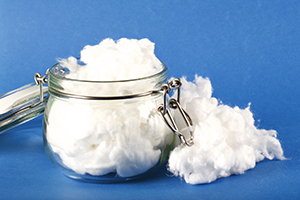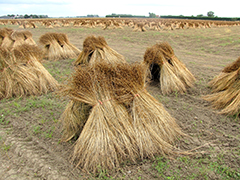Know-how
Nonwoven – a versatile material
At Sporda, we usually sum up nonwoven materials as: More than meets the eye. What do we mean by this? Quite simply:
Nonwoven materials are found in nearly every type of product. From when you sit in your car in the morning to when you get seated in the office or bring the children to preschool, you are surrounded by nonwoven materials. The air your breathe in your car is usually filtered through nonwoven material. When you fall asleep at night, you might be resting on a bed partly made of nonwoven materials.
The thing about nonwoven materials is that they are seldom seen! It is namely nonwoven materials that create a comfortable acoustic environment in your car or at your office, and which filter out the dust and pollen in ventilation systems. Nonwoven materials are what make your blanket feel just cool enough to give you a good night’s sleep. Nonwoven is your invisible companion.
Nonwoven as a construction material
Our product range includes nonwoven materials that are suitable substitutes for plastic and wood in compression moulding. You will also find high-density nonwoven materials that provide both buoyancy and rebounding properties – perfect for the creation of comfortable seating, mattresses or other comfort products. On the other hand, if you are looking for products aimed at reducing human comfort, we can also provide the perfect nonwoven solutions for these purposes. We can offer natural materials that come with antimicrobacterial properties, as well as materials with anti-mite functions.
Vill du veta mera? Contact us
How do I choose the right fibre?
Här presenterar vi kortfattat de olika material vi erbjuder. Vill du veta mera? Contact us





Wool is a fantastic fibre with phenomenal insulation properties – even in wet conditions. If you’ve ever owned woollen underwear, you would certainly have experienced that wool fibre allows for efficient moisture wicking. Keep in mind that if you wish to use wool fibre in furniture, you will need to use some very dense fabric to hold the wool fibre in.

Cotton cultivation requires considerable resources, such as water, fertilisers and pesticides – something to be aware of from the perspective of sustainability. As a better sustainable choice, Sporda’s cotton fibres are extracted from recycled threads produced in Germany.

Sporda’s flax is grown and harvested in Belgium.

Sporda’s viscose is purchased from Austria and Japan, where development is ongoing to use the least environmental- and resource-taxing processes possible.
Would you like to read more about modern viscose production methods? EcoVero [Swedish article], Daiwabo Holdings [English]

Back to the top ↥






